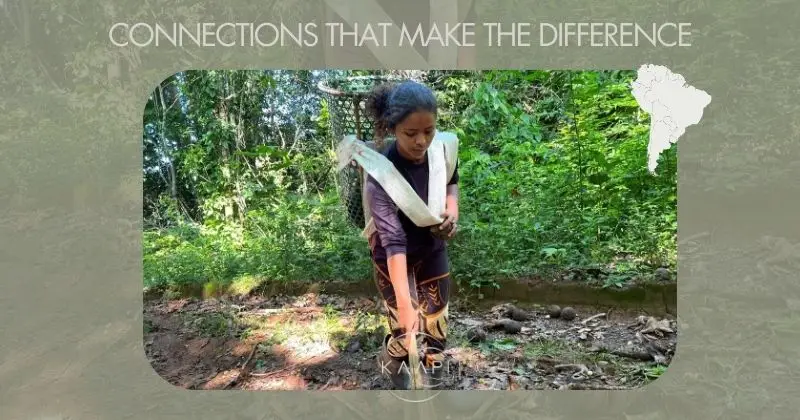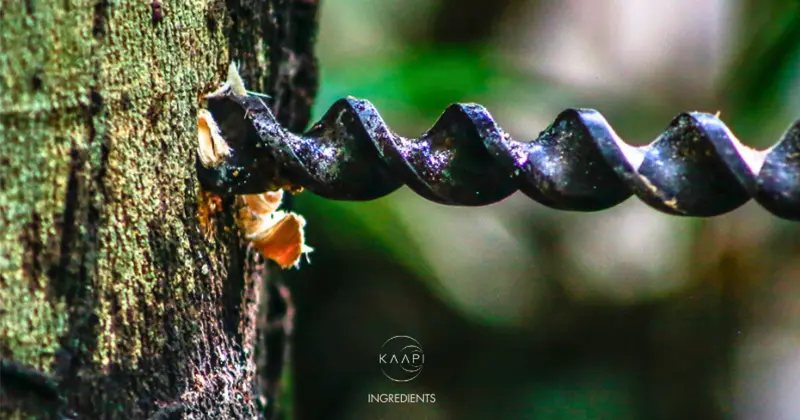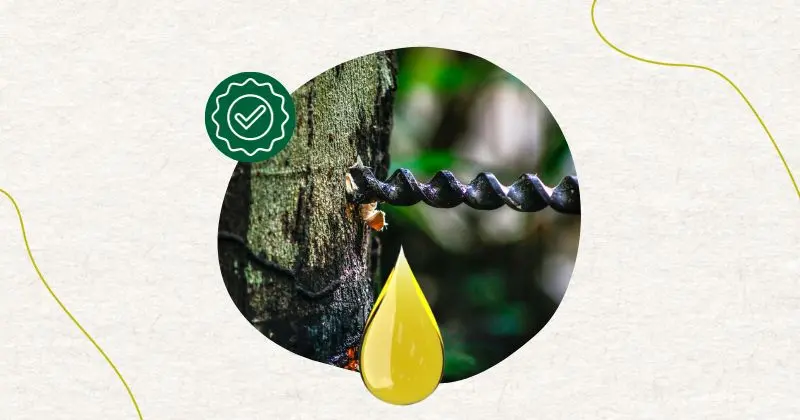Working in the heart of the Amazon isn’t just about growing or gathering forest products. For Cacau, a forest gatherer from the Calha Norte region in Pará, it’s a way of life, a deep connection with nature and the people around her. Her story is one of resilience, struggle, and tireless commitment to the forest and her community.
Cacau’s family history is rooted in wild gathering. The daughter and granddaughter of gatherers, she grew up in an environment where the forest wasn’t just a source of livelihood but the backdrop of her daily life. From a young age, she accompanied her father, who worked with cumaru, a highly valued product in the region. “I was born into this line of work, with cumaru in my blood,” Cacau says proudly.
Her life, shaped by this relationship with nature, isn’t just about work. It’s also about dedication to the community. She has been part of the Brazil Nut Gatherers Association’s board and today, even though not in management, continues to be a reference for the members. “I’m a local reference, regardless of my official role. My life is about helping the community, seeking improvements, handling documents, looking for support. That’s how I’m recognized.”
This connection with the people of the region is what makes the difference for Cacau. More than a business relationships, she has built a network of trust and mutual support with the gatherers who come to her. “When someone arrives tired from working in the forest, I always offer coffee and a cookie. I know what that exhaustion feels like. I know the value of what they do. Here, we help each other,” she shares with a smile. This welcoming approach has made many gatherers prefer to do business with her, not just for the price, but for the respect and sense of community she cultivates.
For Cacau, the gatherer’s work goes beyond collecting and selling products like cumaru and Brazil Nut. She recognizes the daily challenges: difficult logistics, lack of resources, and above all, lack of goverment support. “There are no public policies for wild gatheres. Indigenous people do, quilombolas have, but we don’t. This is a pain I feel deeply,” she confides.
The lack of basic infrastructure, such as drinking water and essential services, is a reality that Cacau and her community face. “Every day, during summer, the situation is desperate. We have a well, but it’s to far. Those with no motorcycles carry water on their heads. This is our reality,” she says, highlighting the urgent need for support. For Cacau, any help, no matter how small, can make a big difference. “When you sit with someone who has the power to help and talk about our reality, you’re already helping us. Saying that in the Trombetas Forest we don’t have drinking water is already a first step,” she adds.
Cacau’s vision for her community’s future is clear and inspiring. She dreams of creating a structure in the region that allows more autonomy for gatherers, adding value to cumaru before it leaves the community. “Can you imagine if we could process this cumaru here, ensuring a fairer return for those who collect it? This would change all our lives,” she says with a glimmer of hope in her eyes.
Cacau’s struggle goes beyond daily work with the forest. For her, her father’s legacy, a gatherer who fought for recognition, is a fuel that drives her to continue. “I fight for the standing forest, for preservation, for recognition of our work. I will never deforest. The forest is our life,” she states emotionally.
Cacau is an example of how connections between people can transform realities. Her story is a reminder that by valuing the work and life of gathering communities, we are actually helping to preserve what’s most precious: the forest, life, and the traditions that inhabit it.




